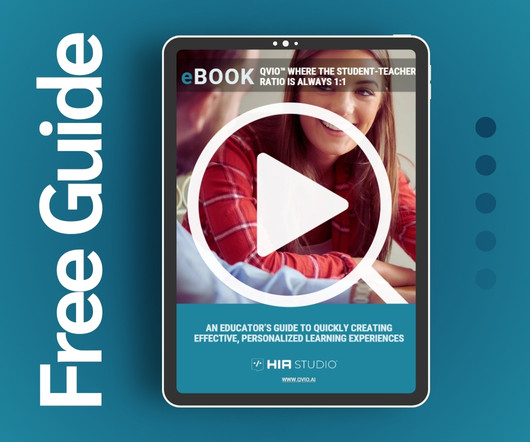Digital Leadership is Not Optional
A Principal's Reflections
MAY 20, 2018
“ Leadership has less to do with position than it does disposition.” – John Maxwell I am currently working on a new edition of Digital Leadership for Corwin and I am very excited, as it will be in color. There are many changes I intend to make, but the most significant will be creating a book that is more “evergreen,” a book with less focus on tools and more on the dispositions of digital leaders.


























Let's personalize your content